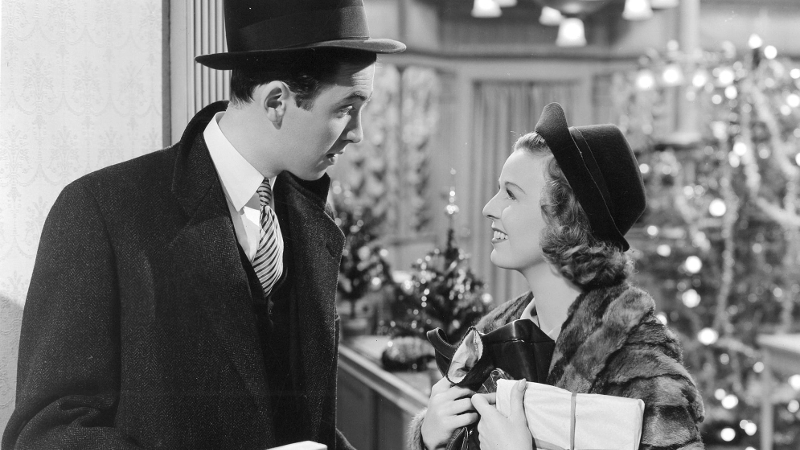Director – Ernst Lubitsch – 1940 – US – Cert. PG – 99m
*****
Two store employees argue constantly, unaware they are perfect for one another – out in cinemas on Friday, December 3rd
It’s quite a shock to see an old Hollywood classic for the first time and realise that you’re seeing one of the greats of which you’ve somehow never heard, but that’s exactly what happened to me watching this extraordinarily charming film which is likely to appeal to anyone who loves the much more familiar It’s A Wonderful Life (Frank Capra, 1946). Both have stories that culminate at Christmas, both star American everyman James Stewart, and both give off what you might call a generosity of spirit. But in other ways, they’re two very different films.
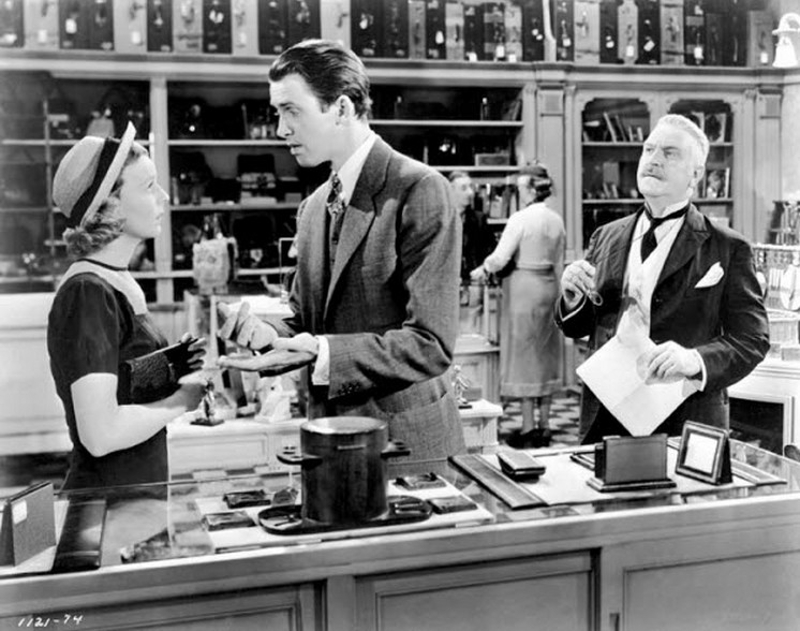
For a start, this is not set anywhere in the US but rather in Europe, specifically the Hungarian capital Budapest. And then, its subject is not so much a town and the people who live there as a department store and the people who work there. There are no rich people dubiously making money by exploiting the poor: certainly there are bosses and workers, but the former treats the latter well and might reasonably be described as benevolent.
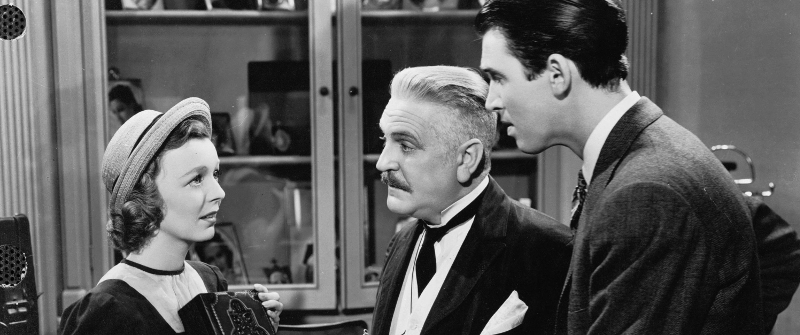
Just as the geographical scale is smaller, so is the focus. Mr Matuschek (Frank Morgan) runs a department store that bears his name with a small but devoted staff: the older Mr Pirovitch (Felix Bressart) who keeps out of the way when the boss is about to ask his ‘honest opinion’, something which his top salesman Alfred Kralik (James Stewart) is only too happy to give. Ferencz Vadas (Joseph Schildkraut from The Diary Of Anne Frank, George Stevens, 1959) is the foppishly dressed man of the world who is perhaps a little too keen to tell the boss what he wants to hear. And Pepi Katona (William Tracy) is the delivery boy who seems to spend much of his time running an impossible amount of errands for the boss’s wife.
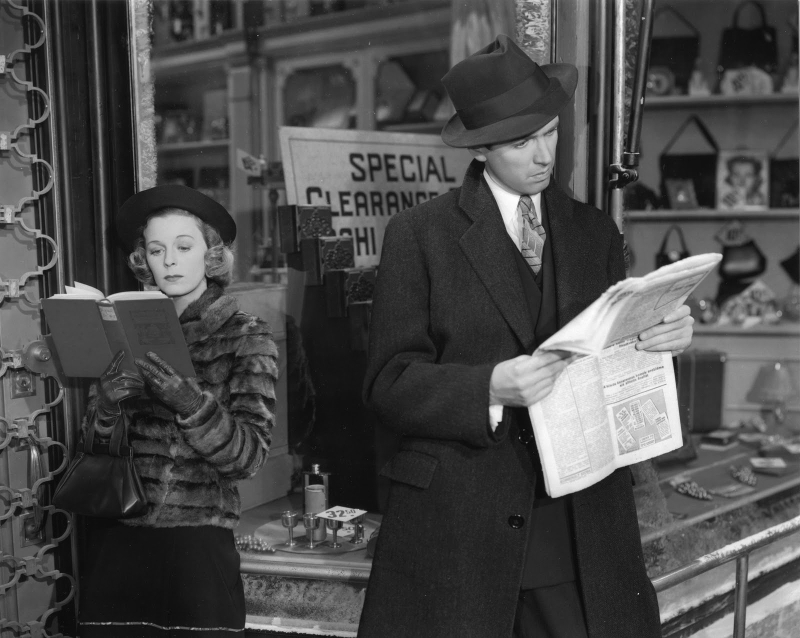
Having answered a newspaper small ad, Kralik is pursuing a promising correspondence “about art and culture” with a woman he’s never met, and has fallen in love. This stands in sharp contrast to his feelings about Klara Novak (Margaret Sullavan) who comes in to the store and turns out to be not a customer but unemployed and looking for a job. She improvises to sell a product to a customer, is clearly a brilliant salesperson, and gets hired. Kralik can’t stand her. She too, it seems, is pursuing a romance of sorts with a member of the opposite sex she’s never met. Of course, it’s obvious to the audience that the secret romances are actually with each other, but neither of them have worked this out yet and some deft scripting makes sure that neither of them do until the last few minutes.
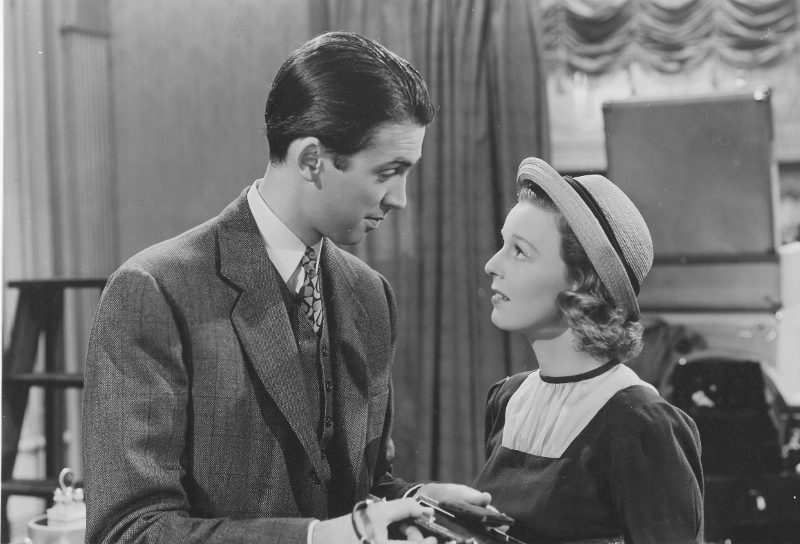
Although based on a stage play – which is obvious if one thinks about the limited locations – it never feels like it. What comes over rather is the feeling of watching a great leading man interact with a great leading lady while a handful of memorable character actors play bit parts. Lubitsch cleverly sets up his camera in different parts of the store, including outside the front window, so that the one location feels like many.
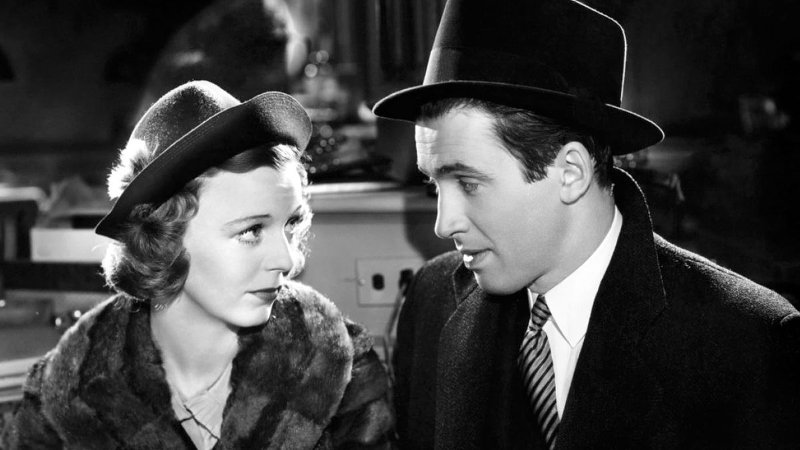
One can’t underestimate the importance of script: how much of the material on the page was in the original play Parfumerie by Nikolaus Laszlo and how much was added in by screenwriter Samson Raphaelson is hard to say, but the former’s play became both a Broadway musical and several other movies after this (In The Good Old Summertime, Robert Z. Leonard, 1949; She Loves Me, Michael Simpson, 1979; You’ve Got Mail, Nora Ephron, 1998) while the latter had similar success with The Jazz Singer being adapted three times for the movies (the first ‘talkie’, Alan Crosland, 1927; Michael Curtiz, 1952; Richard Fleischer, 1980) wrote the screenplay for In The Good Old Summertime, was one of three writers on Suspicion (Alfred Hitchcock, 1941) and was a regular contributor to the scripts of Lubitsch’s films.
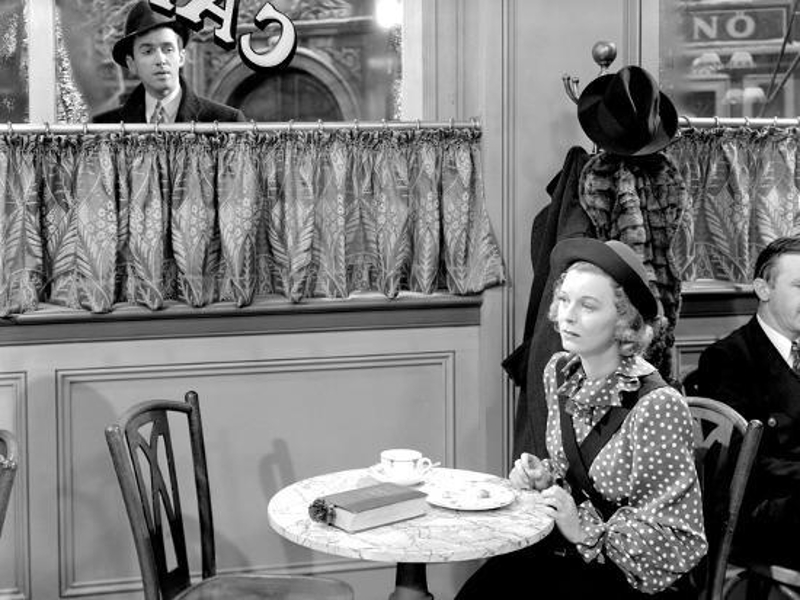
Nevertheless, the film belongs to both Stewart and Sullavan. He is the honest man simply trying to do the right thing and it’s a tall order for an actress against him to achieve comparable impact. Yet that’s exactly what Sullavan manages to achieve here. As soon as the pair of them appear onscreen and start arguing, the film – already captivating the audience with Stewart’s likeable persona – ramps up a level to become even more compelling. William Daniels black and white cinematography is never less than stunning while director Lubitsch holds the whole thing together.
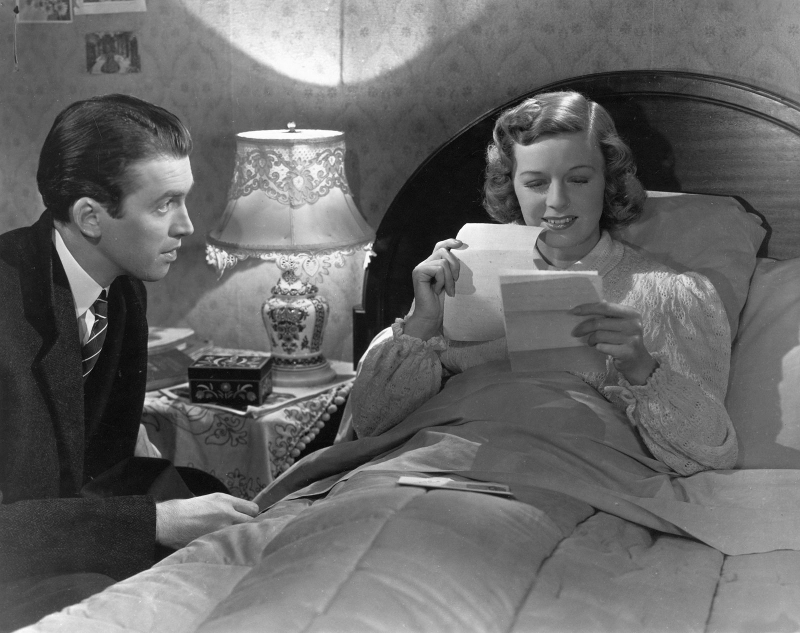
The plot has the boss take time off work for illness and, via some cunning on the part of his co-workers, Kralik promoted to store manager and presiding over a Christmas Eve where the store, with all employees enthusiastically putting in maximum effort, break the previous Christmas Eve sales record. So that makes it a bona fide Christmas movie and, for my money, as enjoyable as the more complex It’s a Wonderful Life. True, it’s a lot less radical, but there’s something heartening about its optimistic vision of a society – of which the department store is clearly a microcosm – where most people from the top to the bottom are basically good and looking out for everyone else. This is a terrific movie and a very nice Christmas present from the BFI.
The Shop Around The Corner is out in cinemas in the UK on Friday, December 3rd.
Trailer:
